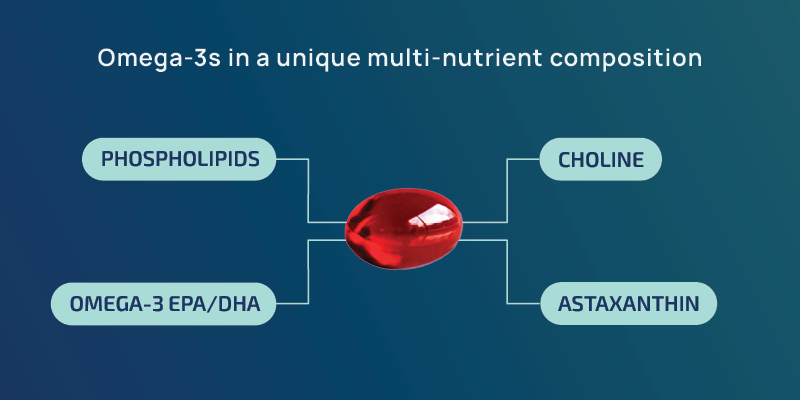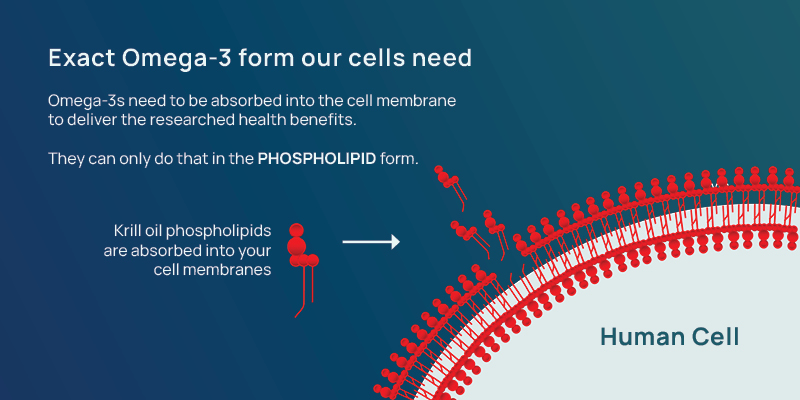With a wealth of health information at our fingertips, today’s consumers are increasingly aware of how the right supplements can boost their nutrition, wellness, and overall health. But few are interested in taking a pile of pills a day, which has put a spotlight on combination supplement formulations – all-in-one options to give consumers the nutrients they need in a simple and convenient way.
However, not all nutritional needs are the same. A consumer browsing the supplement aisle may be seeking a supplement that addresses a specific issue or combination of issues, such as joint pain plus better immune defense. It can be challenging to find the right recipe of nutrients to match individual health needs or concerns, which has fueled the demand for more personalized supplement products.
According to Nutrition Industry Executive, combination supplement products delivering health benefits in a single dosage form solution are becoming more and more popular.
Building a combination supplement product is far more complex than combining several active ingredients and popping it into a capsule. The key is to start with the right base for the formulation and krill oil is one such ideal base for combination supplement formulations.
Read more about global trends and key insights on krill oil and wellness
What makes krill oil a perfect base for combination formulations?
What makes krill oil truly unique is its natural multi-nutrient composition. Besides offering high-quality omega-3 EPA/DHA content crucial for heart health, brain function, joint support, and more; krill oil also provides phospholipids and choline, which are essential for cellular function, along with the naturally occurring antioxidant astaxanthin which gives color to the oil while keeping it fresh and eliminating the need for artificial preservatives.

As a base for combination formulations, krill oil stands out due to its unique phospholipid composition.
Phospholipid-bound omega-3s allows for easy absorption, incorporation and digestion of essential nutrients
Phospholipids are an integral part of our cell membranes influencing cellular structure and function. Since our body’s cells contain phospholipids, phospholipid-bound omega-3s from krill allow for easy absorption and incorporation of nutrients into tissues (1) resulting in enhanced utilization and overall health benefits supporting optimal well-being.
Phospholipid-bound omega-3s from krill work on a cellular level, contributing to cell membrane integrity and improved structure, which, in turn, enables those cells to deliver more omega-3 health benefits throughout the body.

Phospholipid-bound omega-3s from krill can also do the same for other ingredients within a dietary supplement combination by providing an efficient and unique base for other nutrients and aiding them in achieving better absorption in the body.
More than 50 studies on krill oil and its benefits for human health to date
Decades-worth of scientific research has been conducted on krill oil and its effects on the human body. These studies have investigated whether krill oil can make a beneficial impact on human health due to its unique phospholipid-bound omega-3s.
Over 50 studies have been conducted on krill oil and these studies have consistently supported the positive health effects of krill oil across a range of health areas. These significant results include lowered triglyceride levels (without increasing LDL cholesterol) for better heart health; reduced knee pain and stiffness for sufferers of osteoarthritis; less fat accumulation in the liver for better overall liver function; faster recovery and better muscle function for athletes post-workout; and even improved skin, PMS symptom relief and cognitive function.

Approved health claims
Krill oil’s key constituents – EPA/DHA & choline - are supported by four authorized EU health claims related to heart and liver health. In addition, approved health claims in Canada, Australia, South Korea and Japan, all reaffirm krill oil’s health benefits as a unique nutrient-packed omega-3 source.
A red krill pill a day...
Krill oil, in itself, packs a powerful punch, and, when combined with other important nutrients, it has the potential for even greater health benefits for the consumer. It gives supplement makers the opportunity to create unique and targeted combinations of nutrients, tailored to the unique health needs of individuals.
The krill phospholipid effect makes this precious red oil a perfect base for formulations – serving as a powerful ‘vehicle’ that puts nutrients on the fast track to the cellular level for better health results.

Looking for the perfect base for your combination formulation? Reach out to hear more about how krill oil can help you maximize the effect of your supplements.
Krill oil absorption studies:
Ulven, S.M.; Kirkhus, B.; Lamglait, A.; et al. (2011). Metabolic Effects of Krill Oil are Essentially Similar to Those of Fish Oil but at Lower Dose of EPA and DHA, in Healthy Volunteers. Lipids 46, 37–46 (2011).
Schuchardt, J. P.; Schneider, I.; Meyer, H.; et al. (2011). Incorporation of EPA and DHA into plasma phospholipids in response to different omega-3 fatty acid formulations--a comparative bioavailability study of fish oil vs. krill oil. Lipids in health and disease, 10, 145.
Ramprasath, V. R.; Eyal, I.; Zchut, S.; et al. (2013). Enhanced increase of omega-3 index in healthy individuals with response to 4-week n-3 fatty acid supplementation from krill oil versus fish oil. Lipids in health and disease, 12, 178.
Köhler, A.; Sarkkinen, E.; Tapola, N.; et al. Bioavailability of fatty acids from krill oil, krill meal and fish oil in healthy subjects–a randomized, single-dose, cross-over trial. Lipids Health Dis 14, 19 (2015).
Ramprasath, V. R.; Eyal, I.; Zchut, S.; et al. (2015). Supplementation of krill oil with high phospholipid content increases sum of EPA and DHA in erythrocytes compared with low phospholipid krill oil. Lipids in health and disease, 14, 142.
Sung, H. H.; Sinclair, A. J.; Lewandowski, P. A.; et al. (2018). Postprandial long-chain n-3 polyunsaturated fatty acid response to krill oil and fish oil consumption in healthy women: a randomised controlled, single-dose, crossover study. Asia Pac J Clin Nutr 2018;27(1):148-157.
Yurko-Mauro, K.; Kralovec, J.; Bailey-Hall, E.; et al. (2015). Similar eicosapentaenoic acid and docosahexaenoic acid plasma levels achieved with fish oil or krill oil in a randomized double-blind four-week bioavailability study.Lipids in health and disease, 14, 99.

